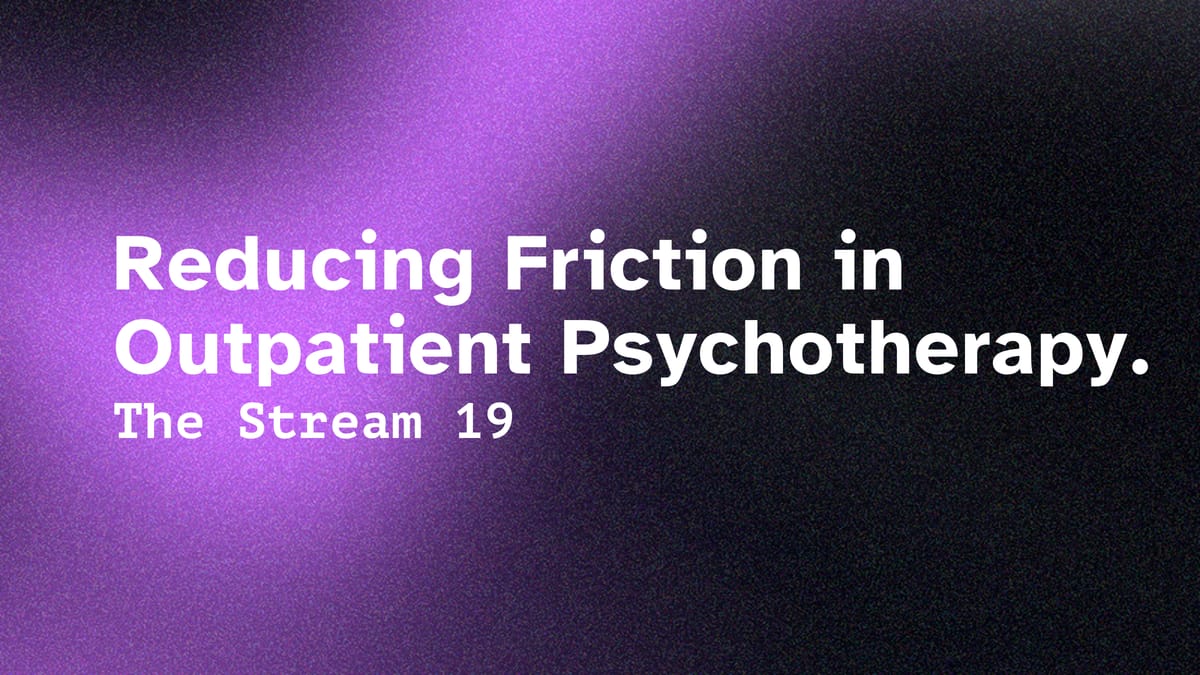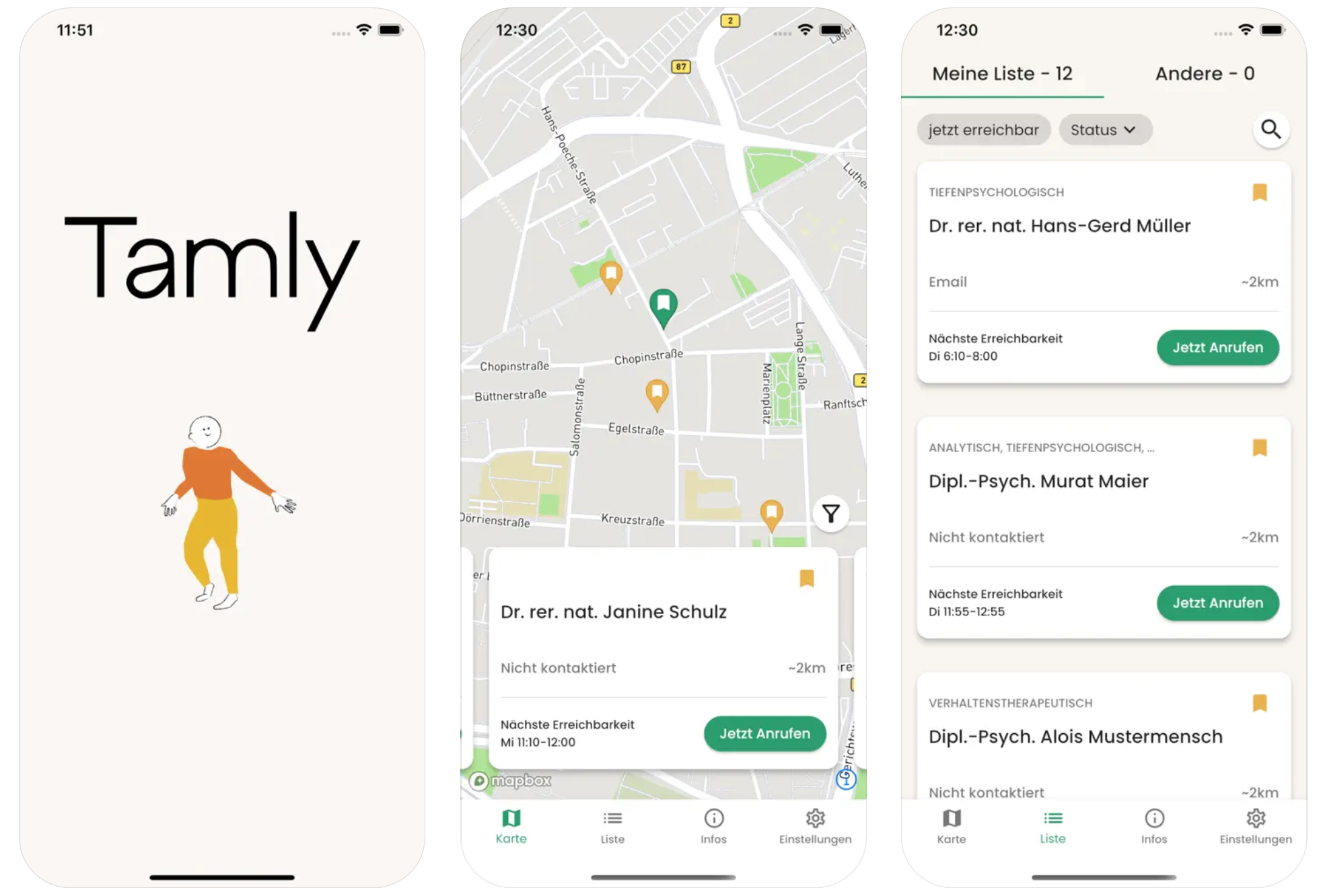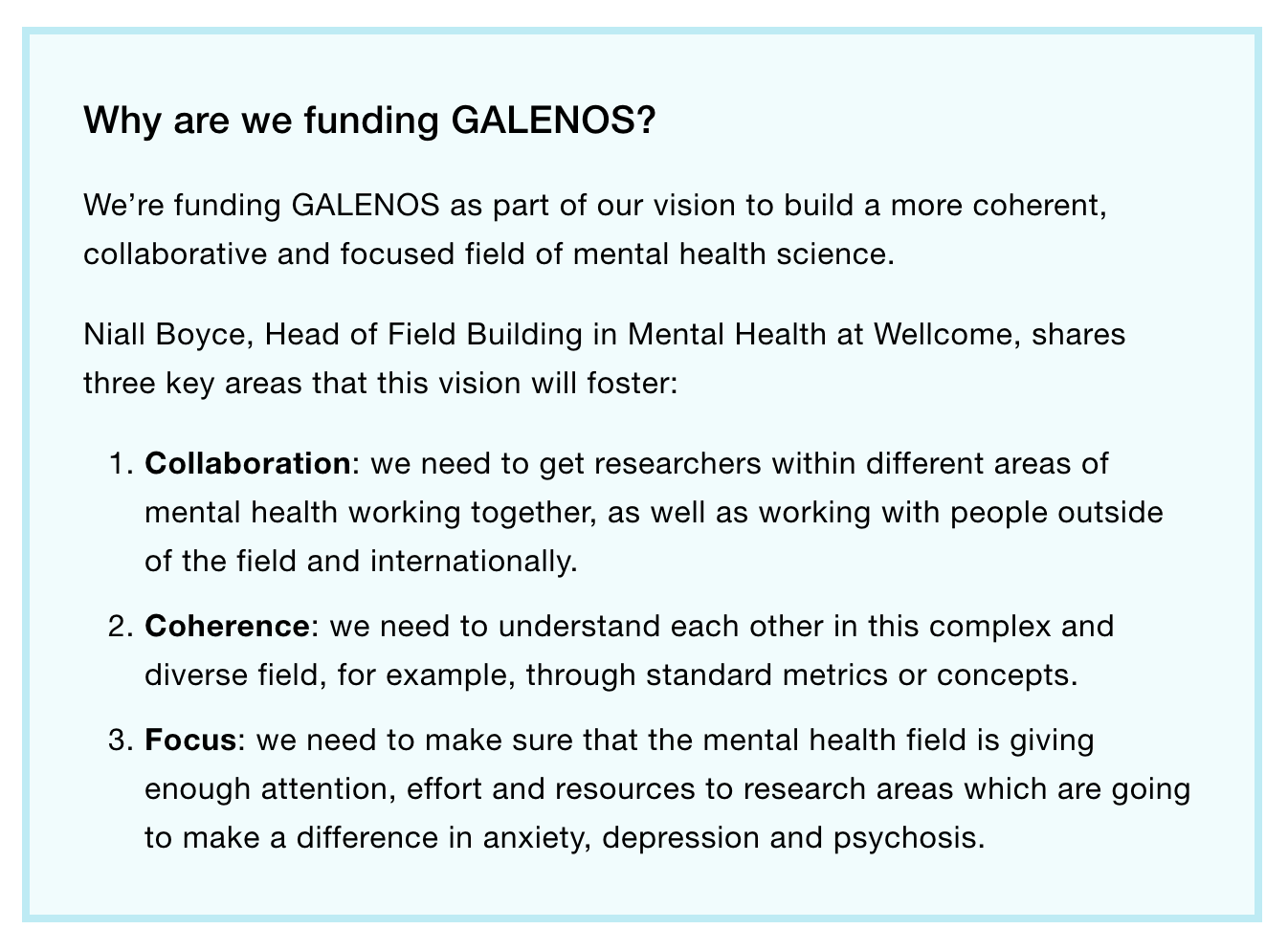Reducing Friction in Outpatient Psychotherapy.
Finding a therapist, using AI in research, and an explainer on AI psychosis.

In this edition:
- Tamly reduces the friction in outpatient psychotherapy. Showcase of a simple but effective technological solution for improving mental healthcare.
- A database for SOTA mental health research.
- An AI psychosis mini explainer.
- New study shows that AI can not morally reason like humans.
Quick note: Do you get value from this newsletter? If so, I have one favor to ask: share it with your colleagues and friends! I would love to see it reach more interested readers. But enough of that, let's get into the topics:
Showcase: Tamly
Reducing friction in finding a therapist.
As I am currently working in a hospital, I am around plenty of highly dysfunctional patients. But many of them are stable enough for outpatient psychotherapy after their stationary stay. What they often aren't stable enough for (during and after the stay): calling dozens of therapists in a grueling game of chance to potentially find someone to continue their treatment.
With no proper follow-up treatment, patients are at risk of consolidating their 8-12 week progress made during the stay. Finding outpatient therapists is a major struggle during this time when the real focus for a patient should be on the care they receive now, not down the road. This is why I think Tamly has a (impossible to quantify but) massive impact:
Tamly is a mobile app built to simplify one of the most frustrating tasks in German healthcare: finding a therapy slot under statutory insurance. It provided users with lists of outpatient therapists based on postal code and treatment preferences, making the process more structured than the usual cold-calling marathon.
Its features are geared toward reducing wasted effort. Users receive reminders for therapist call hours, can track attempts and outcomes in a simple log, and bookmark or view therapists on a map to manage progress. Each profile links to websites and contact details where available.

By July 2025, Tamly had been downloaded more than 50,000 times, signaling significant demand. It does not remove systemic barriers, but it gives patients a methodical way to approach them. In a landscape where finding therapy often feels like trial and error, Tamly’s contribution is pragmatic: structure, reminders, and a feedback loop that keeps users moving rather than stalling.
This is a great example of a simple mental health product which makes human quality care easier to access. Unfortunately, there is basically no business case for such an application to be profitable. Also, this is a fix for the symptoms of a broken system. The lack of centralized appointment and prioritization systems that streamlining the process of getting into therapy is baffling to me. But for the time being, I don't see any changes, so Tamly it is, I guess.
The app is currently available in Berlin and Baden-Württemberg and supports both German and English users, backed by the non-profit Ophelia e.V.
In the news this week:
I. Understanding the SOTA of mental health research. (Database)
GALENOS is a database funded by the Wellcome Fund, that aims at replacing static systematic review papers with a continuously updated database of new research to keep on the leading edge of mental health research.
Systematic reviews are rare, don't get updated regularly, and as a result contain outdated information on a regular basis. This project is focussed on depression, anxiety and psychosis.
The Wellcome Fund states three reasons for funding the project:

This is an alternative to solutions like elicit.com, updated and curated by experts and created in collaboration with affected people.
Check the database for yourself here. Currently, there are only a few overviews available, though.
II. AI induced psychosis: Psychiatrist's experience (Thread)
MD Keith Sakata has observed a dozen cases where hospital admission was connected to LLM usage.
LLMs didn't cause the psychotic breaks, but significantly amplified them. His take: "AI unmasks psychosis" as an autoregressive hallucinatory mirror. The most common AI-linked delusions he and his team observed:
- Persecutory: “ChatGPT is run by a spy agency watching me.”
- Referential: “ChatGPT is sending coded messages.”
- Thought broadcasting: “ChatGPT is echoing my internal thoughts online.”
- Grandeur: “ChatGPT told me how to save the world. I emailed Sam Altman.”
III. AI can not replace humans in clinical trials (Preprint)
LLMs are fundamentally unreliable as replacements for human participants in clinical psychology research. Their output is inconsistent, lacks human range, carries unknown biases, and can misinterpret subtle meaning shifts.
A group of researchers from Bielefeld University and Purdue University have disproven an earlier paper (Dillion et al., 2023), showing how LLMs don't reliably respond like humans to moral problems, based on their text-generation mode: matching by similarity, not by content.
They took the same moral scenarios from the aforementioned study and reworded them in a way that kept answers consistent with human participants, but changed how LLMs answered. Interestingly, they didn't only use general purpose LLMs (like various GPTs from Open AI or Llama3.1) but also CENTAUR, a "foundation model of human cognition" based on human decision-making data in psychological experiments.
These LLMs exhibit the hypothesized generalization failures, making them unfeasible for as human replacements in research.
Alright, that's it for the week!
Best
Friederich
Get the weekly newsletter for professionals in mental health tech. Sign up for free 👇

